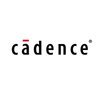


i
Tessolve Semiconductor
Filter interviews by
Tessolve Semiconductor Hardware Engineer Interview Questions and Answers
Tessolve Semiconductor Hardware Engineer Interview Experiences
1 interview found
I applied via Referral and was interviewed before Feb 2023. There were 2 interview rounds.
Questions on basic electronics
(1 Question)
- Q1. About digital electronics power electronics
Top trending discussions







Interview questions from similar companies
I applied via Campus Placement and was interviewed before Jan 2021. There were 3 interview rounds.
(1 Question)
- Q1. What is a cache? What does tag used for in a cache?
- Ans.
A cache is a high-speed data storage layer that stores frequently accessed data to reduce access time. A tag is used to identify the location of data in the cache.
Cache is a temporary storage that holds frequently accessed data
It reduces the access time by providing faster access to data
Tag is used to identify the location of data in the cache
Tag is a part of the cache memory address
Cache can be implemented in hardware...
C Coding questions
(3 Questions)
- Q1. What is your family background?
- Q2. What are your strengths and weaknesses?
- Q3. Tell me about yourself.
Interview Preparation Tips
Skills evaluated in this interview
Interview Preparation Tips
Experience: Questions were from digital Electronics which included realization of counters using JK FF,Sequence detector,Boolean expression reduction,One shot and drawing waveforms of some digital circuits.Questions were also their from pipelinig,finding out MIPS,power consumption of two processors,Small signal analysis of MOSFETs,Buffer using CMOS ,finding out the type of filter given block diagram(control theory).Questions were easy and required step by step realization.
Tips: Prepare digital Electronics very well as it has 50% weightage in paper. Pipelinig is important. Some basics concepts of CMOS is very necessary.
Duration: 1hr 15 min minute
Total Questions: 12
Round: Technical Interview
Experience: First they asked to introduce yourself.
Then they asked about projects & Internship.
STA,EEPROM,EPROM,DRAM,SRAM,CACHE Memory,Pipelining,DMA was asked in depth.
Difference between clock skew and Jitter.
Asked whether I know any Hardware Languages.
XOR gate using 2:1 MUX.
Gave a waveform,had to realize using DFF and considering the delay.
Tips: Study STA very well.
Questions will be asked in depth from any topic.
Round: HR Interview
Experience: Family Background
Why NXP
Hobbies
Skill Tips: Study Digital Electronics very well
Skills: Analog Electronics, Microprocessor, Vlsi Basics, Digital Circuits
College Name: BIT Mesra
Interview Preparation Tips
Experience: Questions were from Digital Electronics,Microprocessors and some from CMOS.
50% Digital Electronics.
1 X Output waveform drawing from circuit of FFs & gates
1 X Realize inverter from given two blocks
1 X CMOS implementation of gates
1 X Realize digital circuit for given waveform
1 X MIPS & Pipelining
1 X Processors power Dissipation calculation
1 X Small Signal analysis of CMOS
1 X Compare two given buffers circuits(CMOS)
1 X Transfer function calculation(Control Theory)
1 X Counter using JK FF
1 X Sequence Detector
Tips: Study digital electronics very well.
Duration: 1 hr 45 min minute
Total Questions: 12
Round: Technical Interview
Experience: Indroduction
Projects & Internship
Discussions in DEPTH on:
Pipelining
STA
MIPS
Memory(flash memory,DRAM,SRAM)
CACHE Memory
DMA
Digital circuit realization for given waveform
XOR Gate using 2:1 MUX
Tips: Prepare Digital electronics and Microprocessors very well.Sta is very important.Panel will go deep into the topics to check ur technical knowledge.
TIPS: Be confident and your opinion should be strong.Stand by what you say.Do not get confused.And when panel asks to solve any digital circuits, speak loud what is in your mind and what approach you are using.Be honest.
Round: HR Interview
Experience: Family Background
Why Freescale
Skills: Static Timing Analysis (STA), Memory, CMOS Circuits, Microprocessor, Digital Circuits
College Name: BIT Mesra
Motivation: I had interest in core electronics

Interview Preparation Tips
Experience: The selection procedure is a test followed by tech interview and an HR interview.
The test had two parts:
Aptitude (common across all profiles)
A tech. test (separate for each profile)
Round: Interview
Experience: The tech interview was the important one and the HR interview was just about knowing the student and vice-versa. The tech interview was more concentrated on the basics and more importance was given to the approach of solving the problem rather than solving the problem itself.
No CGPA cutoff.
Round: Interview
Experience: Not very important.
General Tips: The work is well structured and executed. There is a lot of opportunity for more technical learning. Interns are also included into the teams and this helps the intern on knowing about the things going around them and gets an overall view of how things work.
As a whole, the work is very good, and exceeds all the expectations of the students.
College Name: IIT Madras

Design Engineer Interview Questions & Answers
Texas Instrumentsposted on 28 Aug 2016
I applied via Campus Placement
Interview Preparation Tips
Experience: Resume is not given any due importance in selection for further rounds . But honesty is very important as it counts once you are selected for HR round .
Tips: Try to be one hundred percent honest . And put your projects and course work in the beginning. They don't care your POR s and extra curricular activities.
Round: Test
Experience: Hardware - Questions are mainly from ELECTRICAL CIRCUITS (RLC ckts) , Analog ckts. Amplifiers , Opamps , digital system design . Aptitude section is very easy . Hardware section is tough .I felt Signal processing was easier , indeed I got selected for that profile .
Tips: Prepare thoroughly these courses :- EMC , DIGITAL SYSTEMS, NETWORKS AND SYSTEMS,ANALOG & DIGITAL SIGNAL PROCESSING , ANALOG CKTS COURSES .THAT SHOULD BE ENOUGH .
Duration: 90 - Signal Processing minutes
Total Questions: 120 - Hardware and aptitude
Round: Group Discussion
Experience: No
Tips: No
Duration: 2
College Name: IIT Madras
Interview Preparation Tips
Experience: Test was subjective and questions were asked from basic analog, digital design, VHDL and VLSI circuits.
Round: Technical Interview
Experience: Had 3 technical interviews each around 25 minutes. They asked me about my summer internship and
questions from microcontroller architecture and its interfacing. Then they asked me the questions
from those problems which I didn't attempt in the written test.
Tips: For electrical students, it might be a bit challenging. I took an elective on Microcontroller in 7th sem which
helped me a lot during the interview. You might want to brush up your concepts of 8085, digital, OPAMPs
and analog
Round: HR Interview
Experience: My family background and my future goals were asked. They asked me about
my internship project and wanted to know what I learnt during the internship. Then I asked a few questions
from them about the company work culture and growth opportunities
College Name: IIT Roorkee
Interview Questionnaire
2 Questions
- Q1. Why are you interested in freescale ?
- Ans.
I am interested in Freescale because of their innovative technology and strong reputation in the industry.
Freescale has a history of developing cutting-edge technology
Their reputation in the industry is strong and respected
I am excited about the opportunity to work with a company that values innovation and excellence
- Q2. Hobbies, family background etc. and future plans
Interview Preparation Tips
Total Questions: 15
Round: Technical Interview
Experience: Panel discussed questions attempted incorrectly or not attempted. Topics asked separately: RAM, MOSFET, Memory, Interrupts, FIFO etc.Few puzzles were also asked.
General Tips: Topics that should be covered: Digital Electronics, Microprocessors, Basic Electronics, K Map and FSM questions.
Skills:
College Name: BIT MESRA
I applied via Recruitment Consulltant and was interviewed before Jun 2021. There were 2 interview rounds.
(1 Question)
- Q1. Question related to FPGA. It's flow, timing violation ans it's solution. Verilog questions blocking and non blocking assignment etc , basic question from vivado
(1 Question)
- Q1. Mostly same question related to FPGA
Interview Preparation Tips
(1 Question)
- Q1. Sequence detector circuit
Tessolve Semiconductor Interview FAQs
Tell us how to improve this page.
Tessolve Semiconductor Interviews By Designations
- Tessolve Semiconductor Test Engineer Interview Questions
- Tessolve Semiconductor Post Silicon Validation Engineer Interview Questions
- Tessolve Semiconductor Design & Verification Engineer Interview Questions
- Tessolve Semiconductor PCB Design Engineer Interview Questions
- Tessolve Semiconductor Software Engineer Interview Questions
- Tessolve Semiconductor Associate Engineer Interview Questions
- Tessolve Semiconductor Design Engineer Interview Questions
- Tessolve Semiconductor Mechanical Engg. Design Interview Questions
- Show more
Interview Questions for Popular Designations
- Hardware & Networking Engineer Interview Questions
- Computer Hardware & Networking Engineer Interview Questions
- Computer Hardware Engineer Interview Questions
- System Engineer Hardware Interview Questions
- Hardware Design Engineer Interview Questions
- Computer Hardware Technician Interview Questions
- Senior Hardware & Networking Engineer Interview Questions
- Hardware & Networking Technician Interview Questions
- Show more
Tessolve Semiconductor Hardware Engineer Interview Process
based on 1 interview
Interview experience
Hardware Engineer Interview Questions from Similar Companies
Fast track your campus placements
Tessolve Semiconductor Hardware Engineer Reviews and Ratings
based on 2 reviews
Rating in categories
|
Post Silicon Validation Engineer
185
salaries
| ₹4 L/yr - ₹16.1 L/yr |
|
Design Engineer
133
salaries
| ₹2.6 L/yr - ₹12.3 L/yr |
|
Test Engineer
110
salaries
| ₹3 L/yr - ₹10 L/yr |
|
Senior Design Engineer
92
salaries
| ₹6.3 L/yr - ₹26.2 L/yr |
|
PCB Design Engineer
91
salaries
| ₹2.2 L/yr - ₹9.2 L/yr |

Qualcomm

Infineon Technologies

Advanced Micro Devices

Cadence Design Systems
- Home >
- Interviews >
- Tessolve Semiconductor Interview Questions >
- Tessolve Semiconductor Hardware Engineer Interview Questions











